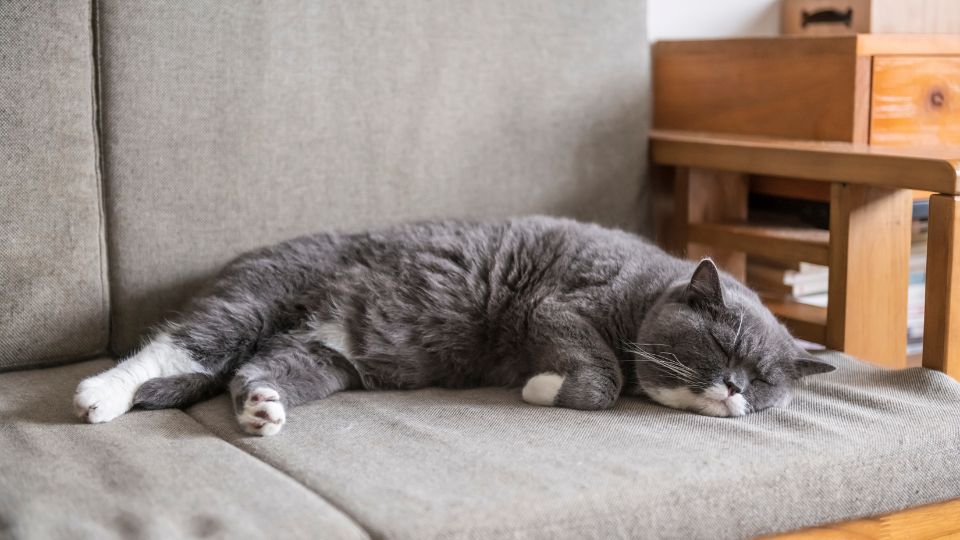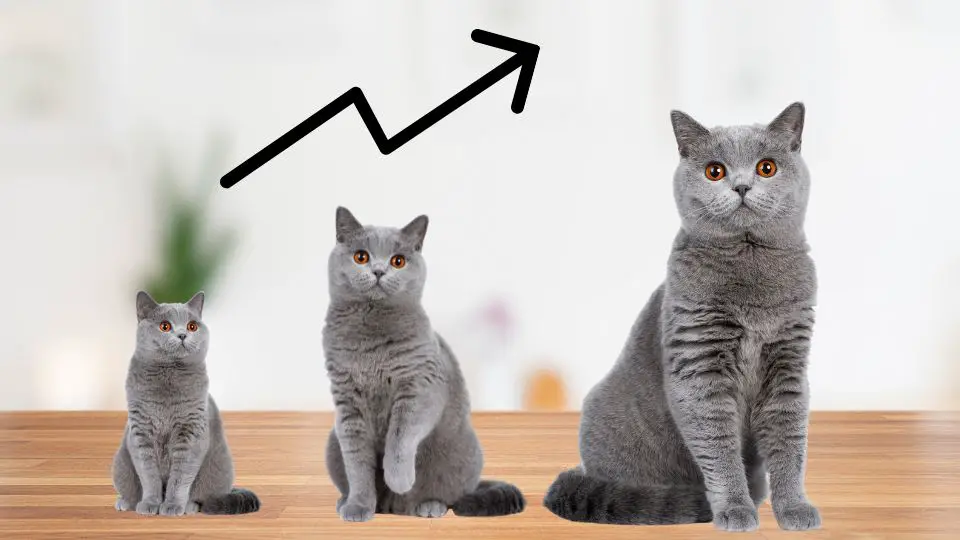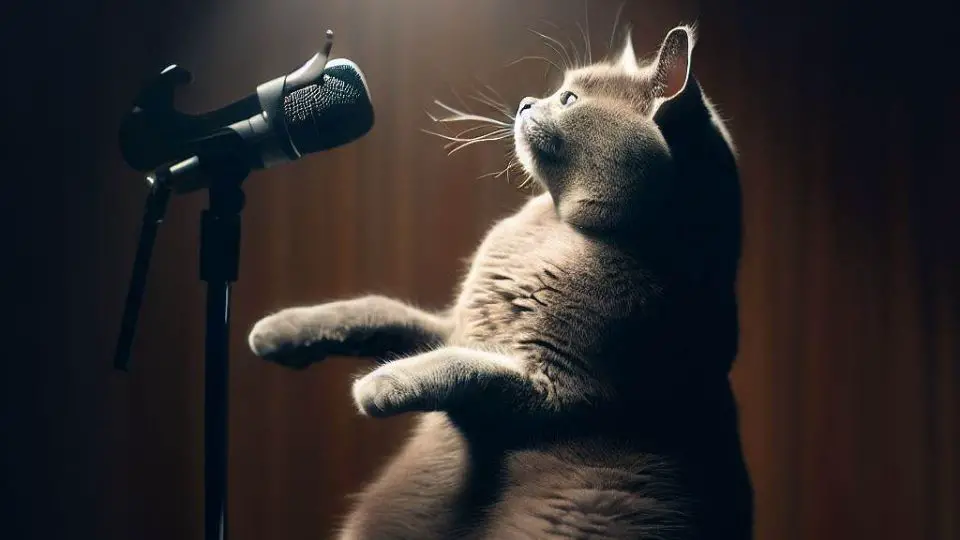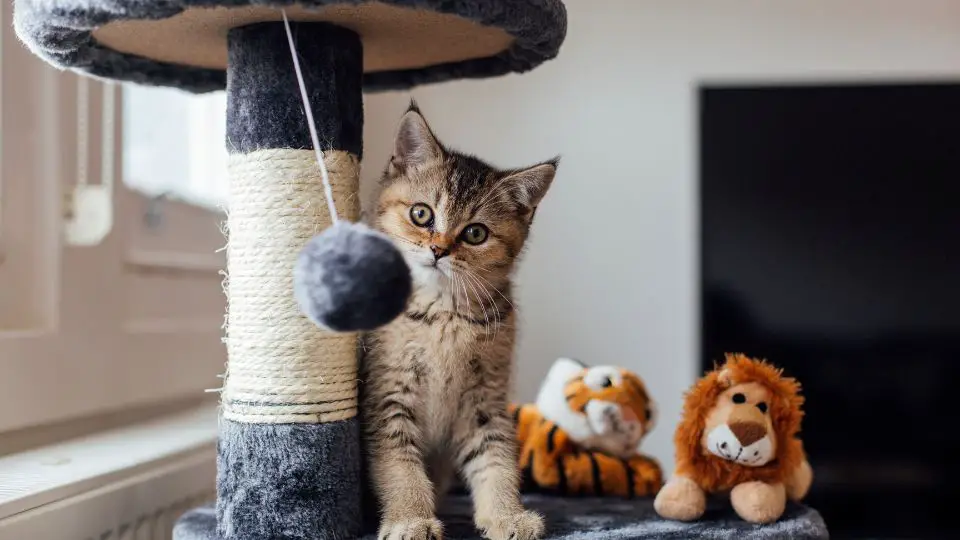Are you curious about how much British Shorthair cats sleep? These lovable felines are known for their relaxed personalities and love of napping.
On average, British Shorthair cats sleep between 12 to 16 hours a day, with some cats sleeping up to 20 hours a day. But why do they need so much sleep?
In this article, we’ll explore the sleeping habits of British Shorthair cats and the factors that can influence their rest.
Understanding Cat Sleeping Habits
Cats are known for their love of sleeping, and it’s not uncommon to see a cat curled up in a cozy spot for hours on end. In fact, cats can sleep anywhere from 12 to 16 hours a day, with some cats sleeping up to 20 hours a day.
The amount of sleep a cat requires can vary based on factors such as age, health, and activity level. Kittens and senior cats tend to sleep more than adult cats, and cats who are ill or recovering from surgery may also require more sleep. Additionally, indoor cats may sleep more than outdoor cats, as they have less opportunity for physical activity.
Cats go through different stages of sleep, including both light and deep sleep. During light sleep, cats may twitch, move their paws, or vocalize. This is also the stage where cats can easily be awoken. During deep sleep, cats are fully relaxed and are difficult to wake up. This is when cats are in their most restorative sleep stage.
Why do British Shorthairs sleep a lot?
British Shorthairs sleep so much because of their natural instincts as predators. In the wild, cats would hunt prey for short periods of time and then spend the rest of their day conserving energy.
Sleeping helps them conserve energy and allows them to be fully alert and active when needed. Additionally, cats have a high metabolic rate, which means they burn a lot of energy quickly, so they need to sleep to restore their energy levels.
Do British Shorthairs sleep at night?
Yes, British Shorthair cats do sleep at night. Like all cats, they are crepuscular animals, meaning they are most active during dawn and dusk but sleep for longer periods at night. However, the amount of sleep they require can vary based on factors such as age, health, and activity level.
Are British Shorthair cats lazy?
This is a common misconception about british shorthair. While they do enjoy their naps and may seem laid back, they are not inherently lazy. British Shorthair cats are actually quite active and enjoy playing, exploring, and interacting with their environment.
However, they may not be as high-energy as some other cat breeds, which can lead to the misconception that they are lazy.
How Long Do British Shorthair Cats Sleep?
British Shorthair cats are known for their love of sleeping and can often be found napping in cozy spots around the house. On average, British Shorthair cats sleep between 12 and 16 hours a day, with some cats sleeping up to 20 hours a day. This is slightly more than the average cat, which sleeps around 12 to 14 hours a day.
If you have a British shorthair, it’s important to provide your little pet a comfortable and cozy sleeping environment to encourage healthy sleeping habits. This can include providing a comfortable bed or sleeping area and ensuring that the room is quiet and free from disturbances.
Additionally, providing opportunities for play and exercise during waking hours can help ensure that cats are getting the proper amount of rest they need.
Several factors can influence the amount of sleep a British Shorthair cat requires.
Age
Like all cats, British Shorthair cats require more sleep when they are young and when they are older. Kittens can sleep up to 20 hours a day, while senior cats may sleep for longer periods of time due to decreased activity levels and other age-related factors.
Health
A cat’s overall health can also impact their sleeping habits. Cats who are ill or recovering from surgery may require more sleep as their bodies work to heal. Chronic conditions, such as arthritis or diabetes, can also impact a cat’s sleeping habits and lead to increased sleepiness or lethargy.
Environment
The environment in which your pet lives can also impact their sleeping habits. Indoor cats tend to sleep more than outdoor cats, as they have less opportunity for physical activity. Additionally, cats who live in noisy or stressful environments may have difficulty sleeping or may require more rest to recover from the stress.
Personality
Remember that each cat is an individual, and some may require more or less sleep than others based on their unique personality and temperament.
When should you be worried about your British Shorthair’s sleeping hours?
While British Shorthair cats are known for their love of sleeping, excessive sleeping or lethargy can be a sign of underlying health issues. If a British Shorthair cat’s sleeping habits suddenly change or they appear excessively tired or lethargic, it’s important to be vigilant and observe for any other symptoms or changes in behavior.
If a British Shorthair cat is sleeping significantly more than usual, appears lethargic, or is not engaging in normal activities, it may be a sign of an underlying health issue such as an infection, anemia, or kidney disease. Other symptoms to watch out for include loss of appetite, vomiting, diarrhea, and changes in weight.
If you notice any concerning symptoms in your British Shorthair cat, consult with a veterinarian as soon as possible. A veterinarian can perform a physical examination, run diagnostic tests, and provide a diagnosis and treatment plan if necessary.
Tips for Encouraging Healthy Sleeping Habits
Encouraging healthy sleeping habits in cats is an important part of ensuring their overall health and well-being. Here are some tips for encouraging healthy sleeping habits in cats, with a focus on how these strategies can be tailored to British Shorthair cats specifically:
Provide comfortable sleeping spaces
British Shorthair cats enjoy cozy and comfortable sleeping spaces. Providing a comfortable bed or sleeping area can encourage them to sleep more and rest better. Consider purchasing a cat bed with a soft cushion or blanket for your British Shorthair cat to sleep on.
Establish a routine
British Shorthair cats thrive on routine and predictability. Establishing a routine for feeding, playtime, and bedtime can help encourage healthy sleeping habits. Try to stick to a consistent schedule for feeding and playtime, and provide a comfortable sleeping space for your British Shorthair cat to sleep in at night.
Regular playtime
Providing regular playtime and exercise for your British Shorthair cat can help them sleep better at night. Cats need physical and mental stimulation during the day to tire them out and help them rest better at night. Consider providing toys and play structures for your cat to climb, scratch, and play with.
Limit distractions
British Shorthair cats can be easily distracted by noise and other stimuli, which can disrupt their sleeping patterns. To encourage healthy sleeping habits, limit distractions in their sleeping environment by keeping the room quiet and free of disturbances.
Monitor sleeping habits
Keep an eye on your British Shorthair cat’s sleeping habits and observe for any changes or concerning symptoms. If your cat appears lethargic, is sleeping excessively, or is not engaging in normal activities, it may be a sign of an underlying health issue. Consult with a veterinarian if you notice any concerning symptoms in your cat.
Do Cats Dream and Snore?
Yes, cats do dream and may even snore. Like humans and many other mammals, cats go through different stages of sleep, including rapid eye movement (REM) sleep. During REM sleep, cats may twitch their whiskers or paws, vocalize, and appear to be dreaming. It’s believed that during this stage, cats are processing and consolidating memories and learning experiences.
As for snoring, cats can indeed snore. This is typically more common in cats who are overweight or have respiratory issues, such as allergies or asthma. Snoring in cats is not usually a cause for concern, but if it is accompanied by other symptoms such as labored breathing or coughing, it’s important to consult with a veterinarian to rule out any potential health issues.
Overall, cats can dream and may even snore, but these are typically normal behaviors and not a cause for concern. Providing a comfortable and cozy sleeping environment, along with opportunities for play and exercise during waking hours, can help encourage healthy sleeping habits in cats.
Conclusion
British Shorthair cats require a significant amount of sleep to stay healthy and happy. Providing a comfortable and cozy sleeping environment, along with opportunities for play and exercise during waking hours, can help encourage healthy sleeping habits in British Shorthair cats.
By understanding their sleeping habits and monitoring their behavior, cat owners can ensure that their feline friend is getting the proper rest they need to stay healthy and happy. If you have any concerns about your British Shorthair cat’s sleeping habits, consult with a veterinarian to rule out any potential health issues.







